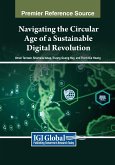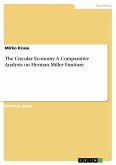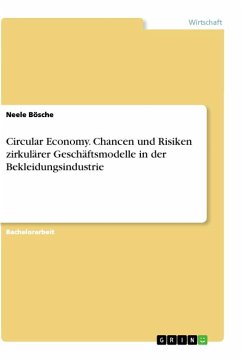Activities and research in recent years have clearly shown that the emergence of the circular economy is an economic, rather than only environmental approach (Yuan, 2006; The Ellen MacArthur Foundation, 2012, 2015). Consequently, it becomes crucial to first consider its unique risks and promises for business and economics, and then propose foundations for its adoption as a viable alternative to traditional models. The goal of this article is to show how circular-oriented small and medium-sized enterprises ("SMEs"), due to their unique values and principles, would be able to share risks related to market activities. For this research, six representatives from various circular-oriented SMEs were interviewed based on several relevant risks related to their business models, and they described how they mitigate these risks. The findings revealed a common pattern which was also examined by experts in the circular economy. The results show that a network structure, where companies from related industries and who share a common goal, work together and actively engage customers in companies' activities, can more effectively share risks.
Bitte wählen Sie Ihr Anliegen aus.
Rechnungen
Retourenschein anfordern
Bestellstatus
Storno








